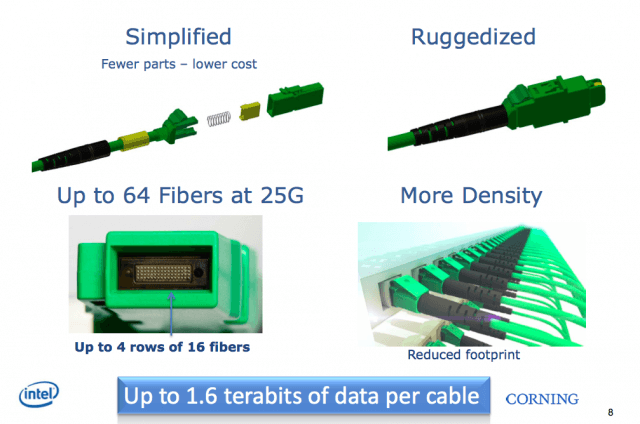New cable technology from Intel will soon be available to data centers and supercomputers, providing significant speed increases over what is already available. Known as MXC, a name which isn't an acronym, the cables are based on Intel's Silicon Photonics technology and support 800 Gbps transfers in each direction, or 1.6 Tbps as an aggregate.

Each cable is a collection of up to 64 separate fibers that support 25 Gbps transfers apiece: 32 are dedicated transmitting cables, and the other 32 are for receiving. Corning, which will manufacture the cables, will also make 8, 16 and 32 fiber cables available to customers at varying, but unspecified costs.
To get a sense of what sort of upgrade this is for data center environments, today's cables are typically capable of 10 Gbps transfers. Not only will MXC cables be faster, they'll also be higher density, more resistant to damage, and capable of pushing their top speeds over longer distances. Intel claims you'll be able to transfer at 800 Gbps at lengths up to 300 meters, giving data center and supercomputer engineers greater flexibility.
In the future Intel are hoping to increase the transfer rate of each line up to 50 Gbps, which would double the throughput of an MXC cable without the need for extra fibers. The company is also hoping to integrate MXC inside racks, creating a "more efficient architecture that separates CPU, storage, power, and networking resources into individual components that can be swapped out as needed."
MXC cable assemblies are currently being sampled to customers and will move to full production in Q3 2014. Going through and replacing copper interconnects with fiber won't be a cheap proposition, but Intel and Corning hope to make the technology a cheap competitor to existing solutions.